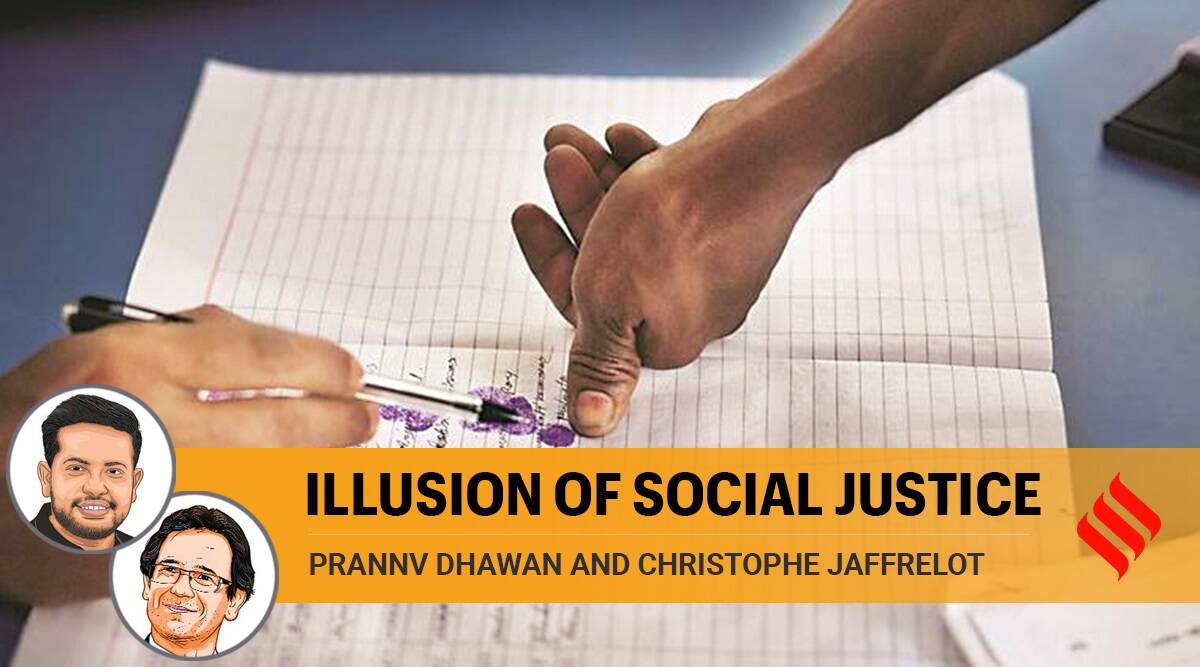
By Krishna Jha
We are a multi-religious country. For each community, there is a spiritual path to arrive at the basics, the most sacred that we hold to ourselves. Our culture is composite, multi- dimensional, and each according to its own context. There are those that are based on natural specifics influencing the practices in everyday lives. Then there are those from not only lower income groups but also from the lowest strata who serve and have to stand and wait patiently to get something in return. It is not for them to ask for their rights. Obviously the relationships were basically evolved to formulate the categorization in the society to keep alive the disparity in the socio- economic formations. It is to serve the interest of one at the peril of the other.
Hence the prevailing sense of alienation, and also despair, with an eroding crisis of identity. Caste division reigns supreme in all this injustice and deters any step towards reversal of this practice. To understand the level of backwardness, and determining its extent, caste census is an imperative need. It would help to know the level for reservation in education, jobs, health facilities and in other basic essentials while moving towards egalitarianism in society.
The last caste census was conducted in 1931. All caste data are projected on its basis. It became the basis for quota caps under the Mandal formula. Caste data were collected for the 2011 census but the data were never made public. Such a diligent exercise would also serve a legal imperative allowing the government to answer the Supreme Court’s call for quantifiable data.
This, however, is not the only anomaly that the present census exercise is facing. The other problem has to do with the growing demand for a separate column for the religion of tribal communities in Census enumeration.
Among the six existing religions mentioned in the Census form are Hinduism, Islam, Christianity, Jainism, Buddhism and Sikhism. Adivasis in Jharkhand, Chhattisgarh, Odisha, West Bengal among others call their faith Sarna which has not been included as a separate religion. In Karnataka, Lingayats, though a prominent religious group, are not mentioned. On the form, the respondents have the liberty to write the name of any community they belong to, but except those in the list, no other would be recognized.
The issue of Sarna code started building up after the Jharkhand Assembly, in a special session on 11 November 2020, passed a resolution asking the Union government to introduce a separate religion code for the tribal population in the upcoming Census exercise. The resolution termed it “Sarna Adivasi Dharma” – a generic name for tribal nature worshippers. Under the present circumstances, tribal people have no option but to identify themselves as one of these or as “Other Religions & Persuasions (ORPs)”, or are forced to tick “Hinduism” or fall in the category of ORPs.
The demand to get Sarna religion included in the Census enumeration has put the Rashtriya Swayamsevak Sangh in a fix. For decades, the RSS and its affiliates – the Sangh Parivar – have tried to convince tribals that they are essentially Hindus living in forests rather than being independent religious communities. But now, as the demand for Sarna code has started making waves in Jharkhand as well as in neighbouring states, the RSS seems to be petrified. On the ground, it is maintaining a studied silence trying not to say anything that would annoy tribals even in the slightest way, while, at the same time, hoping that the BJP-led government at Centre would do the needful – find a way out to politely reject the demand of Sarna code’s inclusion as a separate religion in the Census enumeration.
The RSS claims that the Adivasis are Hindus. But Adivasis constitute an independent identity. The bases of their cultural and religious beliefs are completely different from those of the Hindu belief system. For example, varna system is integral to the Hindu social structure. Adivasis have actually stayed out of it. Moreover, the cultural and religious practices of various Adivasi groups in India are always linked with jal, jangal and jameen (water, forest and land), the same that forms the basis of what is being described as Sarna religion. The Adivasis, therefore, believe that their demand of Sarna code is an issue of their cultural identity.
In the Census of 2011, about 50 lakh people of Sarna religion – more than the total population of Jains – opted for the ‘others’ category.
The pride of being the original settlers as the word Adivasi connotes, was taken away from them as their identity, and were given the status of “Vanavasis” or forest dwellers by the RSS. The term original settlers could be used only for descendants of Vedic people, a critical component of “Hindu Rashtra”. Hence the “Adivasis”, as original dwellers, challenge the Sangh’s project, whereas in the concept of “vanavasis”, there is only ‘submission’, preferred by Hindu construct. However, the reality is that there is simmering discontent among Adivasis against the Sangh in most of Jharkhand’s tribal areas and may create similar fissures in neighbouring tribal dominated states. For, Adivasis have started looking at the activities of the Sangh Parivar as an attempt to subsume their cultural identity.
At the moment, there is complete confusion as to when the next Census exercise would take place. It was to be held in 2021 but had to be postponed owing to the Covid pandemic. Now it is likely only in 2024. (IPA Service)
The post Coming Caste Census Has To Focus On Many New Dynamics Of Indian Society first appeared on IPA Newspack.


